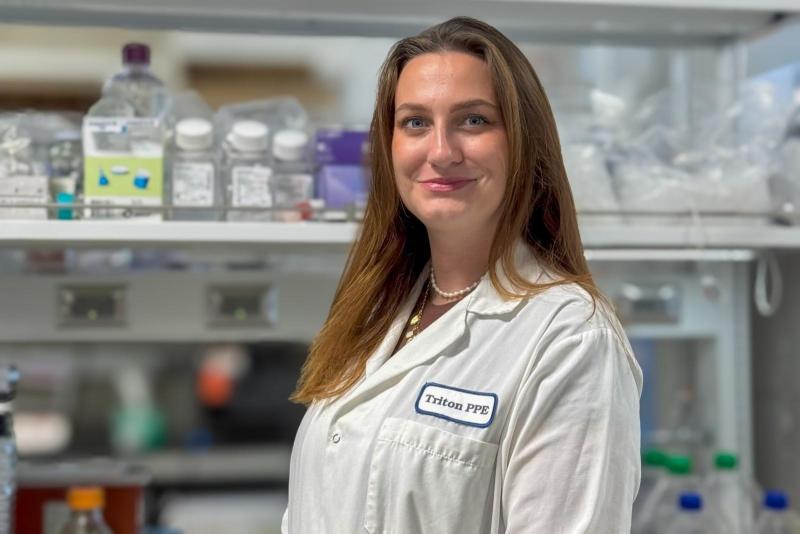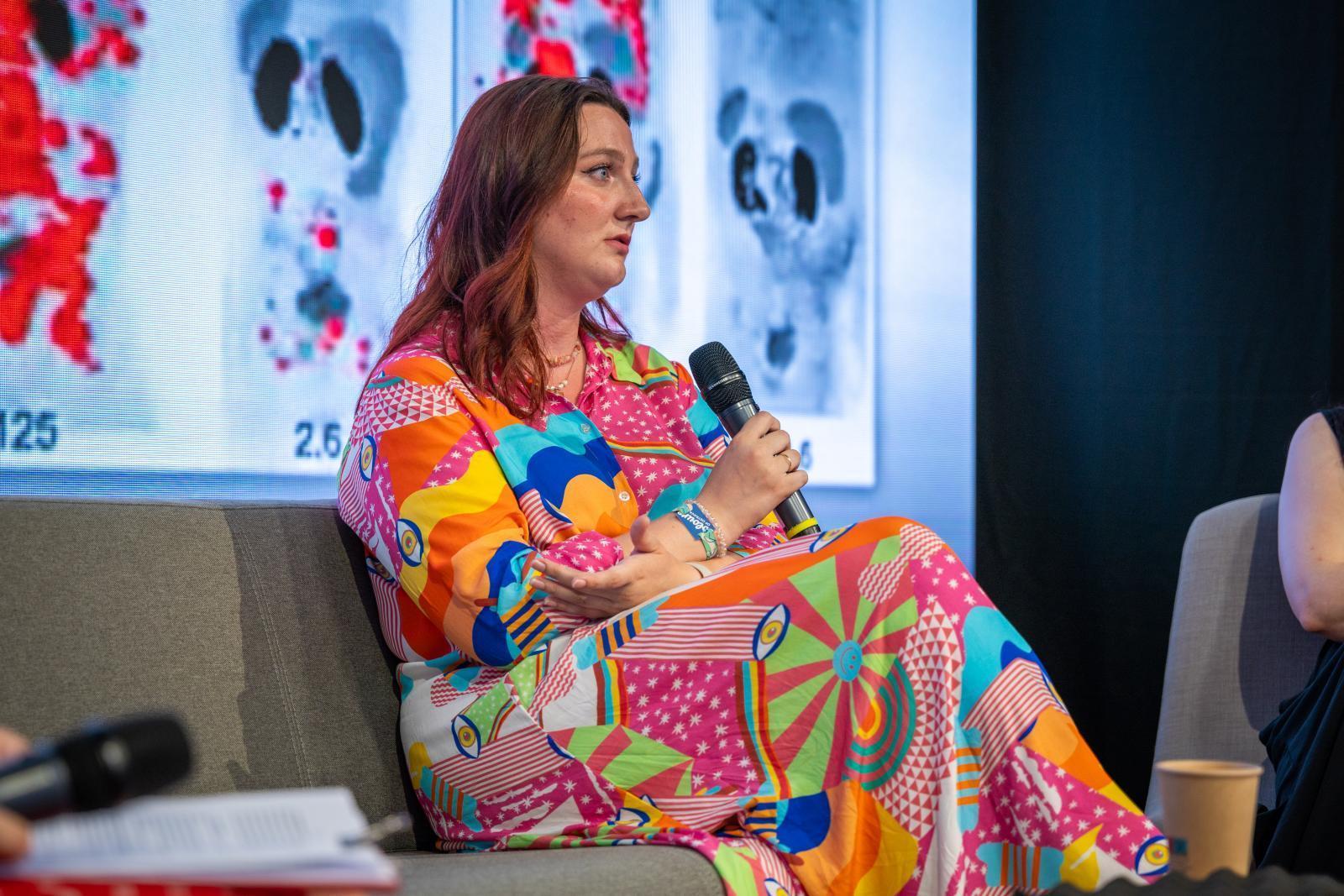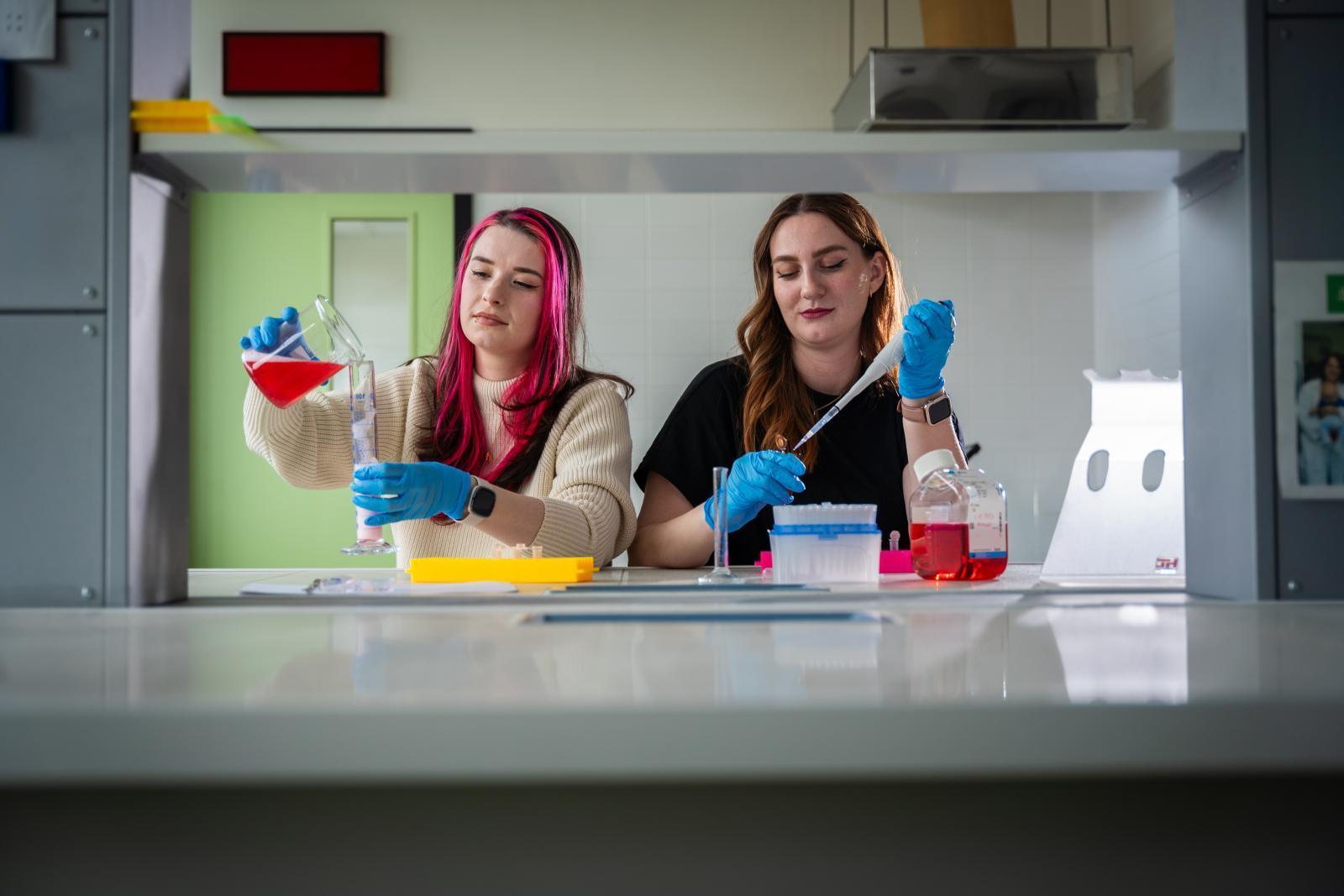People
We need women in science, says Forbes award-winning scientist Michaela Vojníková

She received the Fulbright Scholarship, won the Falling Walls Lab competition, was awarded the Brno Ph.D. Talent prize, and was named in the Slovak Forbes 30 under 30 list. Michaela Vojníková is one of the successful scientists from the Brno University of Technology. She has dedicated her scientific career to the search for a “cure for cancer” and spends her free time popularizing science on social media.
Doctoral student and now also head of the Nanomedicine Laboratory Michaela Vojníková studied Chemistry for Medical Applications at the Faculty of Chemistry at BUT. She currently works at the CEITEC BUT research center, where she focuses on non-invasive cancer treatment using nanoparticles. Specifically, she researches lipid nanoparticles for theranostics, which have broad applications in both the treatment and diagnosis of cancer.
Her journey into nanotechnology didn’t begin in the lab but in a lecture hall during an immunology class. “I liked how the nanoscale world connects technical aspects with biology and chemistry. You need to explore and grasp elements from each field to come up with interesting applications,” she explains. She chose lipid nanoparticles because, though synthetic, they structurally resemble cells. This allows them to interact naturally, merge with cells, and deliver drugs effectively.
Cancer, she says, is a deeply personal issue. “My grandmother died of cancer, and I feel like almost every family has a similar story. Yet it’s still an unsolved problem. Cancer has so many traits that make it unstoppable, which is why I decided to contribute to society’s fight against it,” Michaela says with determination.
Pushing the Boundaries of Cancer Research
The young scientist focuses her work on theranostics, aiming to develop nanoparticles that can both treat tumors and detect their movement in the body. After successful lab tests, her research progressed to testing on mice with induced tumors. Michaela is now examining how the nanoparticles behave at the cellular level, their paths through the body, which organs they reach, and their therapeutic effects. Unlike typical approaches, her team focuses on the complete process of biodistribution. “Usually, scientists design nanoparticles, target a tumor, and track whether the particles reach it. We, however, monitor other organs and the full journey of each particle, which is often missing in medical research,” she explains.
The result of this research, part of her dissertation, will be proof that lipid nanoparticles are safe, effective, and potentially suitable for clinical use. “We’re testing multiple tumor types to see if the approach is universal or specific to certain cancers. In some cases, we’ve observed complete tumor disappearance, but more commonly we see tumor growth slowing and extended lifespan in mice,” she says.
But her research doesn't stop there. Michaela is expanding into the study of nanorobot behavior. Her passion and expertise took her to the United States, where, thanks to a Fulbright scholarship, she worked with Professor Joseph Wang – one of the world’s leading nanotechnology experts. “We discovered that nanorobots behave very differently in cellular environments compared to regular nanoparticles. Specifically, they continuously enter the cells,” she notes. While she can’t yet explain why, she believes this different behavior could play a key role in future cancer treatments.
“We tend to use what’s already known, but I think we should try to outsmart the tumor a little more. There's still a vast field to explore,” she reflects. Michaela plans to continue her work on cancer treatment after her PhD, but she's also considering diving into women’s health research, a field largely unexplored in clinical studies until the 1990s.
A Scientist in the Lab and on Instagram
In addition to her scientific career, Michaela also focuses on science popularization, creating content for her Instagram profile @chemia_zivota and participating in various outreach events. Last year, she spoke at the Meltingpot forum at the Colours of Ostrava festival. “I realized how important it is to bring science closer to people. I don’t just talk about my research – I share what I find interesting,” she says, adding that she often explains things her friends ask about.
On social media, she explains scientific concepts, comments on social trends, and shares behind-the-scenes glimpses into a PhD student’s life. Recent posts explored topics like “Where did gluten-free come from?” or pondered if humanity could face a fate like that in The Last of Us. If she one day leads her own research group, she hopes to use social media to reveal even more of the behind-the-scenes of science and lab life.
Although she sometimes questions whether to continue with science communication, Michaela dreams of writing a popular science book. “I don’t think there’s a single popular book about nanotechnology yet – it could be quite fascinating,” she says with a mysterious smile.
Thanks to her cutting-edge research and active social presence, Michaela Vojníková made it to the list of Slovakia’s 30 most prestigious young people. Being named in Slovak Forbes’ 30 under 30 is a huge achievement and, above all, validates the meaningfulness of her work. She hopes the recognition brings new connections and motivation. “I’m thrilled!” she says. “It’s a push that tells me I’m on the right path and these topics need attention. Even if I sometimes doubt myself.”
She Didn’t Study Medicine, but She Still Wants to Save Lives
And how does this energetic, ambitious young scientist feel in a tech world still dominated by men? “I have to say, I’ve been lucky with my team. My boss really respects me and gives space to my ‘crazy’ ideas, so I’ve never felt restricted by him,” she says. However, she occasionally encounters stereotypical comments. According to her, women bring essential qualities to male-dominated technical fields. “Empathy is very important. Sometimes I feel like I’m the only one who can communicate across our group when we’re under pressure. I’m sort of the team’s internal psychologist,” she jokes.
Though she was steered toward technical education from a young age, her path to the Brno University of Technology wasn’t straightforward. She enjoyed math, physics, chemistry, and biology, so studying medicine seemed like the next logical step. But becoming a doctor wasn’t entirely her decision. “At the time in Slovakia, it was trendy. Every good student was expected to go into medicine,” she recalls. The turning point came after her first entrance exams. “I realized medicine wasn’t for me, and that I wanted to go to Brno. I knew I enjoyed technology and could be good at it,” she says.
At BUT, Michaela especially appreciated the helpfulness of the teachers and the setup at CEITEC, where she landed a position thanks to an internship and testing for her thesis. “CEITEC offers a personalized approach, which suits me. The atmosphere is very friendly and open,” she says, adding that the community at BUT is probably the best experience of her life.
And what would she advise girls considering studying technology? “We women shouldn’t internalize stereotypes or demotivate ourselves. We can be just as good in tech as anyone else,” she says with a smile.
From uncertain beginnings in chemistry to a prestigious award. A young scientist from FCH BUT won the Czech Head Award for her research into unusual forms of DNA
Women from BUT who move the world of science and technology
A lack of hay for horses inspired Joes Jančář to create a smart nutrition for plants
Experiment from FCH BUT shows that bioplastics are not always the greener choice
PhD student Patrik Sokola from FCH BUT on research into photocurable suspensions: I enjoy the wow effect when making new discoveries